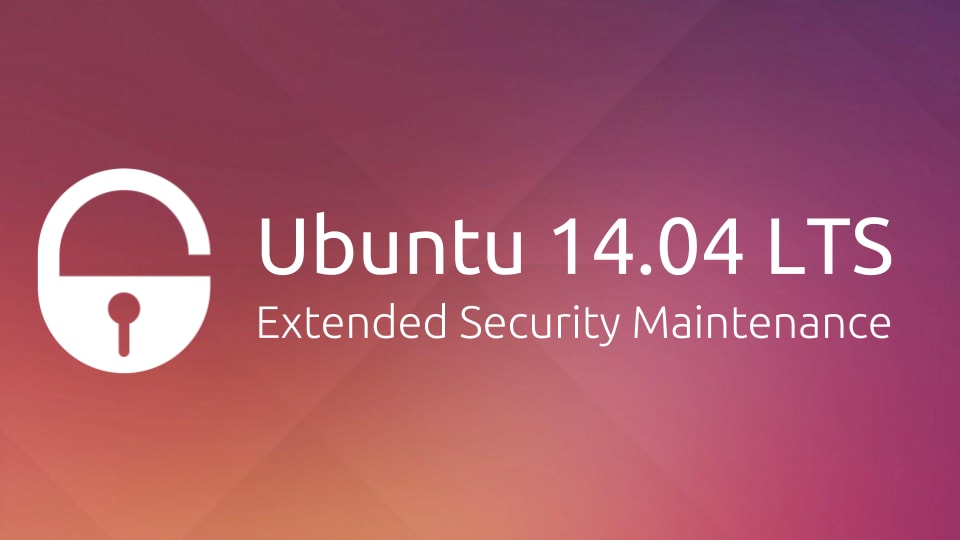Canonical
on 5 February 2019
Ubuntu 14.04 LTS Trusty Tahr Extended Security Maintenance

Ubuntu 14.04 LTS – As 14.04 reaches the end of its five-year LTS window in April 2019, Ubuntu 14.04 LTS ‘Trusty Tahr’ transitions to Extended Security Maintenance (ESM).
ESM is a feature available through Ubuntu Advantage, Canonical’s commercial support package. ESM as a stand-alone addition was available for 12.04 only.
Contact the Ubuntu experts at Canonical to start planning for Ubuntu 14.04 the support transition, or to talk through your Ubuntu 12.04 estate, and how Extended Security Maintenance could help you simplify your migration process while maintaining compliance and security standards.
Start planning for Ubuntu 14.04 ESM
What is Extended Security Maintenance?
The introduction of Extended Security Maintenance for Ubuntu 12.04 LTS was an important step for Ubuntu, allowing for critical and important security patches beyond the five-year support timeframe for this LTS release.
ESM is used by organisations to address security and compliance concerns while managing the upgrade process to a newer version of Ubuntu under full support. ESM provides organisations with the ability to plan application upgrades in a failsafe environment, a factor that is often cited as the main value for its adoption.
The availability of ESM for Ubuntu 14.04 means that the close of the LTS window for the 14.04 release should not negatively impact an
Canonical puts security at the heart of Ubuntu, in our practices, processes, compliance and the architecture of our products
Learning from Ubuntu 12.04 Extended Security Maintenance
Ubuntu 12.04 was the first Long Term Support version of Ubuntu to receive an Extended Security Maintenance. This couldn’t come at a better time, as in the last year IT departments have had to deal with major IT security and compliance issues: GDPR, Spectre, Meltdown, Stack Clash, Blueborne, Dirty Cow, SegmentSmack or FragmentSmack to name a few. In total ESM has provided over 120 updates, including fixes for more than 60 high and critical priority vulnerabilities, for Ubuntu 12.04 users.
Extended Security Maintenance gives the opportunity for IT, devops and security teams to take on a new approach to their OS update strategy:
Commercetools reduced operational risks and increased GDPR compliance across their legacy deployments thanks to Ubuntu’s Extended Security Maintenance. ITstrategen used Extended Security Maintenance to guarantee the continued security of its servers and saving its clients from costly application updates.
To find out more about the transition of Trusty Tahr in to ESM, register to watch the webinar, ‘How to ensure the ongoing security compliance of Ubuntu 14.04 LTS ‘Trusty Tahr’’.



